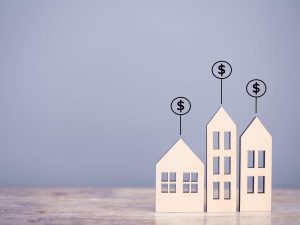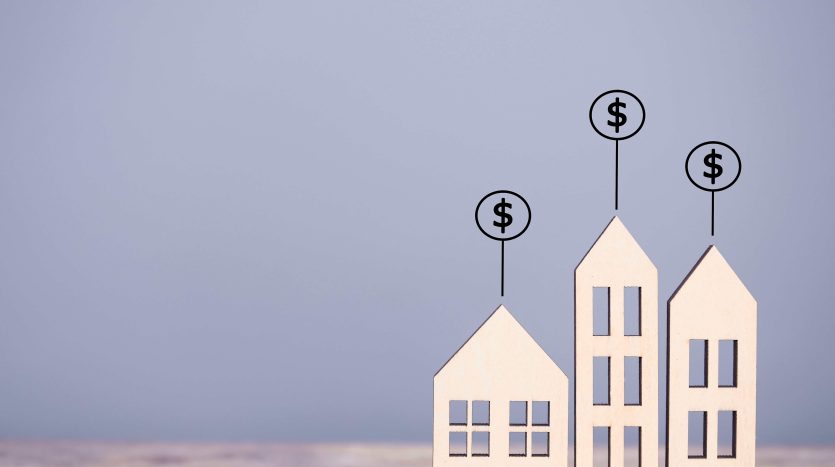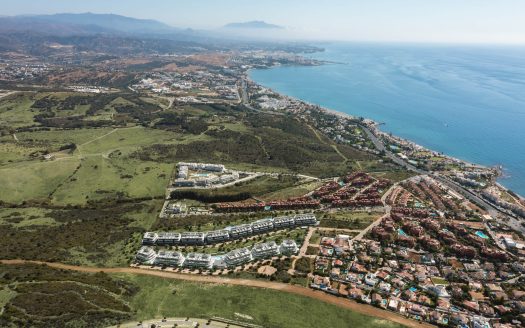The hidden costs of owning property in Spain: what to look out for
The hidden costs of owning property in Spain
Owning property in Spain is an exciting and rewarding endeavor, but there are hidden costs that many owners do not consider. These unexpected expenses can have a significant impact on your budget and returns. It is essential to be prepared for these costs to make an informed decision and avoid financial disappointment.
In this comprehensive guide, we explore the various aspects of hidden costs when owning property in Spain. We cover topics such as management, maintenance, extra services, taxes, insurance and legal fees. By the end of this article, you will have a clear understanding of what you need to consider in order to become a successful and profitable property owner in Spain.

What are hidden costs?
Hidden costs are expenses that are not immediately visible or expected when owning real estate. These costs can easily be overlooked or underestimated during the purchase process. They include such things as maintenance costs, municipal taxes, insurance premiums and management fees.
It is critical to understand and provide for these hidden costs because they can have a significant impact on your cash flow and return on investment. By taking them into account, you can create a more accurate budget and avoid financial surprises.
Important aspects of owning property in Spain
Before delving deeper into the specific hidden costs, it is important to understand some crucial aspects of owning property in Spain.
- Location: The location of your property in Spain has a major impact on costs. Popular tourist areas may have higher maintenance and management costs, while remote areas may have lower costs but also generate less rental income.
- Property type: Hidden costs can vary depending on the type of property you own, such as an apartment, detached home or commercial property. Each type has its own unique challenges and cost structures.
- Age of property: Older properties may have higher maintenance costs because of the need for renovations, upgrades and repairs. Newer properties may have lower costs initially, but may be more expensive in the long run because of depreciation of materials and systems.
By considering these aspects, you can gain a better understanding of the potential hidden costs involved in your particular situation.
Hidden costs of property management and maintenance in Spain
One of the biggest hidden costs when owning property in Spain is management and maintenance. These expenses can be significant and must be planned carefully.
Management fee
Many owners choose to hire a professional management company to manage their property. These companies take on tasks such as:
- Tenant Management
- Collection of rent payments
- Coordinate maintenance and repairs
- Administrative tasks
Costs for a management company vary, but are usually between 10% and 15% of rental income. It is important to include these costs in your budget because they can be a significant amount, especially with multiple properties.
Maintenance costs
Real estate requires regular maintenance to remain in good condition and maintain value. These maintenance costs can vary depending on the age and type of property, but may include the following expenses:
- Painting
- Repairs to roofs, pipes and electrical systems
- Replacement of worn parts or equipment
- Garden maintenance and landscaping
- Cleaning services
It is wise to establish an annual maintenance budget, which is usually between 1% and 3% of the property value. By keeping this in mind, you avoid costly emergency repairs and preserve the value of your investment. Those who invest in new construction for immediate resale rarely have maintenance costs. In turn, those who rent out have maintenance costs more often.
Extra services and hidden costs when owning property in Spain
In addition to management and maintenance, there are other hidden costs and expenses associated with owning property in Spain. These costs can vary depending on the location, the type of property and the services you wish to offer.
Common areas and facilities
Many real estate properties in Spain, such as apartments and community developments, have common areas and facilities that need to be maintained. This can include the following:
- Maintenance of swimming pools and recreational facilities
- Security and surveillance
- Cleaning services for common areas
- Maintenance of elevators and general infrastructure
This cost is usually shared among all owners and can be a significant amount depending on the size and quality of the facilities.
Utilities and services
As a property owner in Spain, you are responsible for paying for utilities and services, such as:
- Electricity
- Water
- Gas
- Internet and cable TV
- Waste disposal
These costs can vary depending on the season, use and location of the property. It is important to accurately budget and factor these costs into your cash flow analysis.
Vacation rentals and tourist taxes
If you rent out your property in Spain to tourists or vacationers, you may face additional fees and taxes. Some regions in Spain levy tourist taxes or rental permits that must be included in your budget.
Hidden costs when buying property in Spain
In addition to the ongoing costs associated with owning property in Spain, there are also hidden costs associated with the purchase process itself. It is important to consider these before making a purchase.
Transfer tax
In Spain, a transfer tax is charged on the purchase of property. This tax, known as Impuesto sobre Transmisiones Patrimoniales (ITP), is usually between 6% and 10% of the purchase price, depending on the region and whether you are buying an existing home or new construction.
Notary fees
When purchasing property in Spain, notary fees are required to prepare and legalize the purchase agreement. These fees can vary, but are usually between 0.5% and 1% of the purchase price.
Registration fees
After the purchase is completed, the property must be registered at the Spanish Land Registry. This registration fee is usually between 0.5% and 1% of the purchase price.
By including these hidden costs in your budget, you can avoid unpleasant surprises during the purchase process and accurately estimate the total cost of your investment.
Attorney fees
Those who buy real estate in Spain should consult a lawyer (who acts as a notary in Spain and thus protects the client’s interests). His/her fee consists of about 1% to 1.5% of the purchase price. Also keep in mind that applying for NIE numbers (identification number for foreigners) costs money.
Taxes and levies when owning property in Spain
As a property owner in Spain, you are subject to various taxes and charges that can have a significant impact on your cash flow and returns. It is crucial to understand and provide for these taxes and expenses.
Property tax (IBI)
The Impuesto sobre Bienes Inmuebles (IBI), also known as the real estate tax, is an annual tax levied based on the assessed value of your property. The amount of this tax can vary depending on the location and value of the property.
Income Tax
If you generate income from renting out your property in Spain, you are subject to Spanish income tax. Tax rates may vary depending on your place of residence and other factors.
Contributions to common costs
As mentioned earlier, owners of apartments or common developments must contribute to the cost of maintaining common areas and facilities. These contributions can be a significant amount and must be accurately budgeted.
Tourist taxes
Some regions in Spain levy special tourist taxes on vacation rentals or accommodations. These taxes can vary depending on the location and type of accommodation, and should be included in your budget if you plan to rent out your property to tourists.
By carefully planning and including these taxes and charges in your financial projections, you will avoid unexpected costs and be able to accurately estimate your net income from your property investment in Spain.
Insurance and legal costs when owning property in Spain
In addition to taxes and fees, there are other hidden costs associated with owning property in Spain, such as insurance and legal fees.
Insurance
It is essential to adequately insure your property in Spain against risks such as fire, water damage, theft and liability. The cost of these insurances can vary depending on the type of property, location and extent of coverage.
Some insurance policies, such as homeowners insurance, are mandatory in Spain, while others, such as contents insurance, are optional but highly recommended.
Legal fees
As a property owner in Spain, you may face legal issues, such as rent disputes, property disputes or disputes with contractors. It is wise to include a buffer in your budget for any legal costs, such as attorney’s fees and court proceedings.
By including these costs and expenses in your planning, you avoid financial stress and can respond quickly and effectively to any legal challenges that may arise.
Tips to avoid hidden costs when owning property in Spain
Now that we have discussed the various hidden costs and expenses associated with owning property in Spain, it is important to provide some tips to minimize and avoid these costs.
- Do thorough research: Before making a real estate investment in Spain, it is crucial to thoroughly research the location, type of property, taxes, duties and other costs that apply. The better prepared you are, the better you can estimate and plan for hidden costs.
- Prepare a realistic budget: Prepare a detailed budget that includes all expected costs, including a buffer for unforeseen expenses. Take into account maintenance costs, taxes, insurance and other hidden costs that we have discussed in this article.
- Consider a management company: Although a management company will incur additional costs, it can be cost-saving in the long run. These companies have the expertise and resources to efficiently manage your property and prevent potential problems.
- Stay abreast of changes in legislation and taxes: Legislation and taxes in Spain can change, which can impact your costs as a property owner. Stay aware of these changes and adjust your budget and strategy if necessary.
- Invest in maintenance and prevention: By performing regular maintenance and taking preventive measures, you can avoid costly repairs and unexpected expenses. This can result in significant cost savings in the long run.
By observing these tips and being proactive in planning and managing the hidden costs, you can become a successful and profitable property owner in Spain.
Conclusion: Hidden costs to consider
Owning property in Spain can be a rewarding and exciting investment, but it is essential to consider the hidden costs and expenses involved. By understanding and anticipating these costs, you can create an accurate budget, avoid financial surprises and make an informed decision.
In this comprehensive article, we have covered the different aspects of hidden costs when owning property in Spain, such as management and maintenance, extra services, taxes, insurance, legal fees and tips to minimize these costs. By observing this information, you will be better prepared to face the financial challenges and enjoy the benefits of owning property in beautiful Spain.
If you are considering making a real estate investment in Spain, let us be your guide. Our experienced team of local experts is ready to guide you through every step of the process. From finding the perfect property to navigating the hidden costs and legalities, we’ll make sure you make an informed and profitable investment. Contact us today and find out how we can help you make your dreams come true in the beautiful Spanish real estate market.












